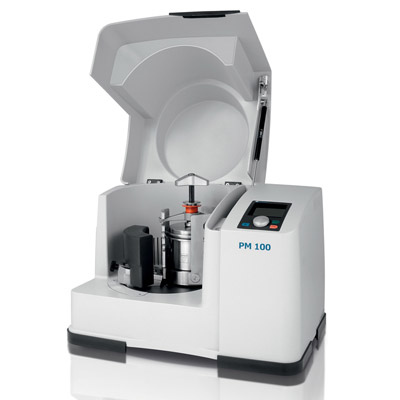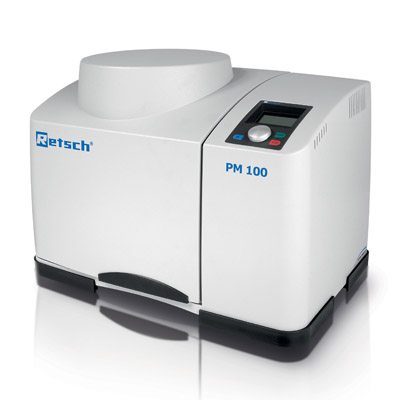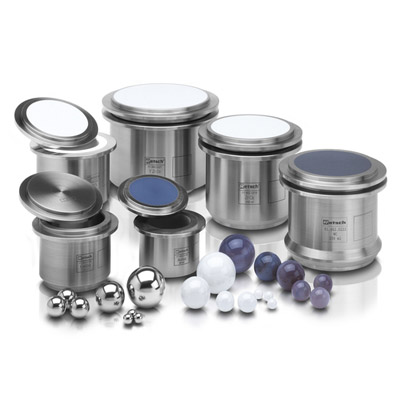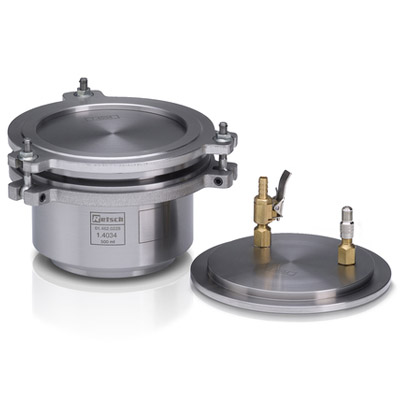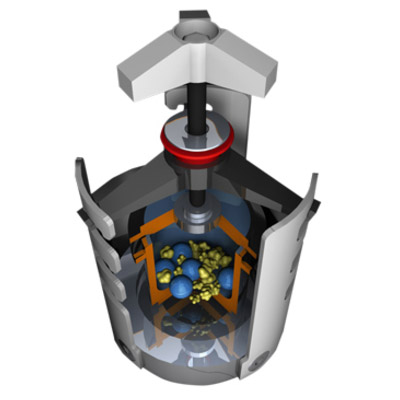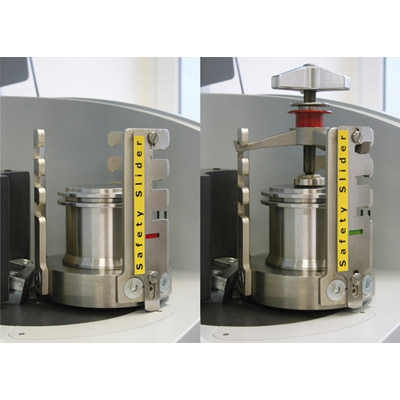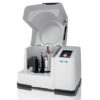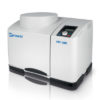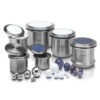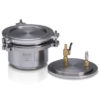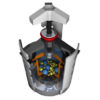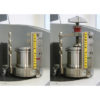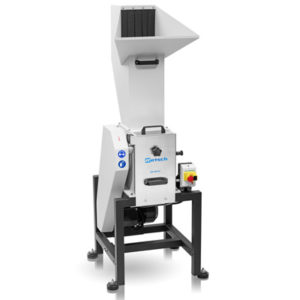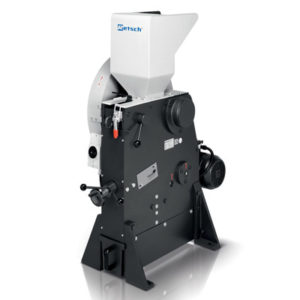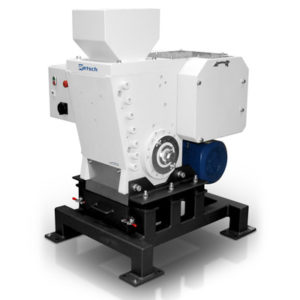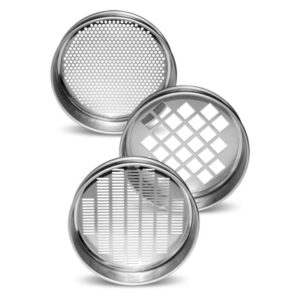Application Examples
Alloys, Bentonite, Bones, Carbon Fibres, Catalysts, Cellulose, Cement Clinker, Ceramics, Charcoal, Chemical Products, Clay Minerals, Coal, Coke, Concrete, Compost, Electronic Scrap, Fibres, glass…
Product Advantages
- Powerful and quick grinding down to nano range
- Reproducible results due to energy and speed control
- Suitable for long-term trials
- 2 different grinding modes (dry and wet)
- Optional pressure and temperature measuring system PM GrindControl
- Wide range of materials for contamination free grinding
- Safety Slider for safe operation
- Perfect stability on lab bench thanks to FFCS technology
- Innovative counter weight and imbalance sensor for unsupervised operation
- Comfortable parameter setting via display and ergonomic 1-button operation
- Automatic grinding chamber ventilation
- 10 SOPs can be stored
- Programmable starting time
- Power failure backup ensures storage of remaining grinding time
- Jars with O-type sealing for safe operation, pressure tight
Function Principle
The grinding jar is arranged eccentrically on the sun wheel of the planetary ball mill. The direction of movement of the sun wheel is opposite to that of the grinding jars in the ratio 1:-2.
The grinding balls in the grinding jars are subjected to superimposed rotational movements, the so-called Coriolis forces. The difference in speeds between the balls and grinding jars produces an interaction between frictional and impact forces, which releases high dynamic energies. The interplay between these forces produces the high and very effective degree of size reduction of the planetary ball mill.
Planetary mills with a single grinding station require a counterweight for balancing purposes. In the Ball Mill PM 100 this counterweight can be adjusted on an inclined guide rail. In this way the different heights of the centers of gravity of differently-sized grinding jars can be compensated in order to avoid disturbing oscillations of the machine.
Any remaining vibrations are compensated by feet with some free movement (Free-Force Compensation Sockets). This innovative FFCS 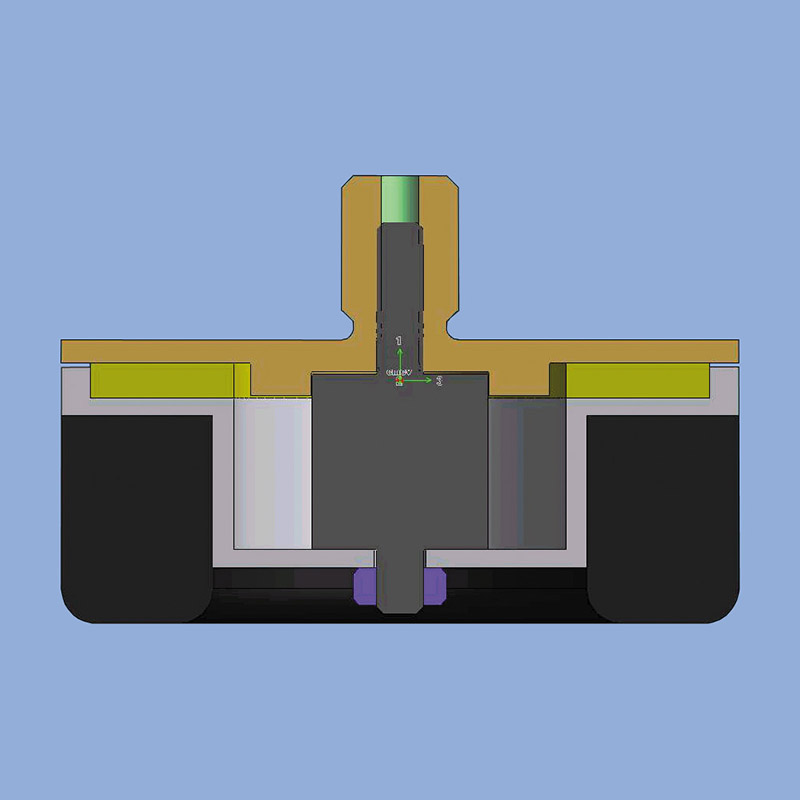
In this way the PM 100 ensures a quiet and safe operation with maximum compensation of vibrations even with the largest pulverization forces inside the grinding jars and therefore can be left on the bench unsupervised.

